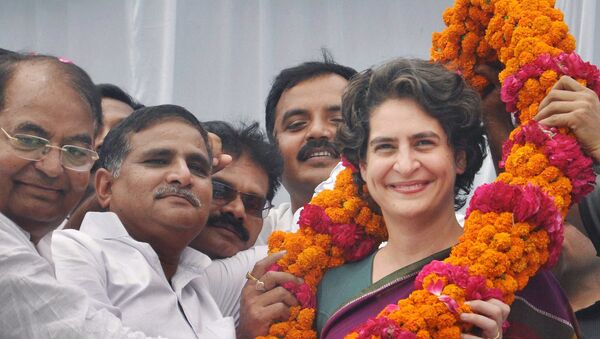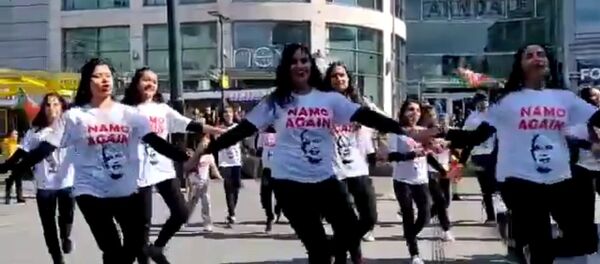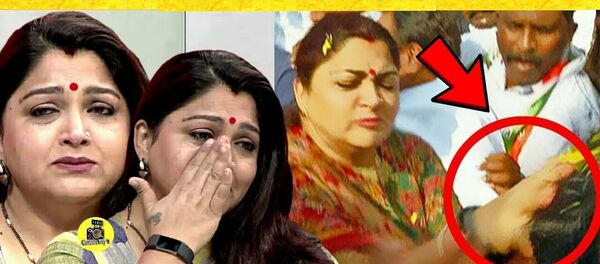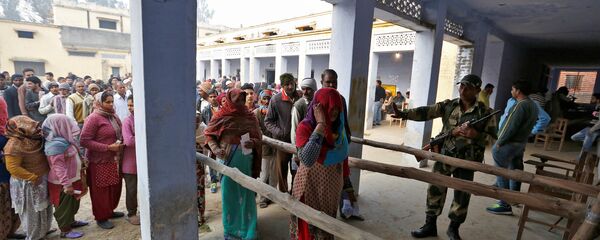New Delhi (Sputnik) — The opposition Indian National Congress (INC) has in all likelihood decided to field one of its key leaders, Priyanka Gandhi Vadra, the younger sister of party president Rahul Gandhi, against India's Prime Minister Narendra Modi in the North Indian holy city of Varanasi, which he represents in the Indian Parliament. Varanasi is regarded as the oldest living place on earth.
Prime Minister Narendra Modi has been representing the parliamentary constituency of Varanasi since 2014 after successfully completing three consecutive terms as chief minister of the Western Indian state of Gujarat. As the first prime minister of India to represent Varanasi, he has shown both how an ancient city can be developed and how the lives of villagers can be improved.
READ MORE: Indian Politician Breaks Internet With Formally Joining Election Arena
Five years later, the situation is different, with most leaders of the major political parties opting to contest from at least two seats. Take the example of Rahul Gandhi, the president of the Indian National Congress. After much deliberation and debate within the party, he decided to contest from two seats parliamentary seats — Amethi in Uttar Pradesh and Wayanad in the Southern Indian state of Kerala, which is said to be a secure seat of the Congress Party.
— Keerthik Sasidharan (@KS1729) April 9, 2019
Wayanad has a large Muslim population, and most of them are supporters of the Indian Muslim League (IML). The IML is a faction formed by the Muslim League that remained in India after the formation of Pakistan in August 1947.
READ MORE: Release of Controversial Biopic on Indian PM Put On Hold Till After Elections
In 2014, the Indian National Congress won only 44 seats in the Indian Parliament, said to be one of the worst electoral performances by a major political party of India. Now in 2019, the party has been infused with fresh energy through the entry of Priyanka Gandhi.
Prime Minister Modi was announced as the ruling Bharatiya Janata Party's (BJP's) candidate for Varanasi on 21 March. He will be filing his nomination in that city on 26 April 2019. The Indian National Congress, on the other hand, is yet to announce its candidate, though less than two weeks are left to file the nomination.
— PIB India (@PIB_India) April 8, 2019
The Indian National Congress is hoping that by announcing Priyanka Gandhi's candidature from Varanasi, it will be able to reduce the BJP's tally of 71 seats in Uttar Pradesh, which it secured in the 2014 general elections. The state of Uttar Pradesh sends 80 winning candidates to the Indian Parliament, the largest number, every five years.
The Indian National Congress candidate from Varanasi in 2014, Ajay Rai, revealed that they have requested Priyanka Gandhi to challenge Narendra Modi from Varanasi, but added that ultimately it is her decision and the decision of the party to choose the best possible option for the city in the 2019 elections.
READ MORE: Curtain Rises on Dance of Democracy in India: 1st Phase Polling Begins
"After Priyanka Gandhi's visit here, we are gaining in confidence. She looks like a replica of former Prime Minister Indira Gandhi. Her fame would bring success to us. We all demanded that she should contest the election from here. We had sent a resolution in the form of recommendation letter," Ajay Rai told Sputnik.
The Congress created an IT cell to expose the BJP and Prime Minister Modi's failure in developing Varanasi as they had promised in 2014. But they also know that it will be tough to convince the voters to go against Modi.
"In our campaigning, we have invented new terms. At the national level, Congress is running a campaign called ‘Watchman is thief and BJP —I am watchman'. We have introduced ‘I am Banarasi' (Banaras is another name of Varanasi). We are running a social media campaign to elect a local person, a person who knows you and your city better," said Raghvendra Chauby, the chief of the Congress IT cell in Varanasi while talking to Sputnik.
"Last time the Prime Minister won by 3.5 lakh votes, this time the people have pledged to make his victory historical. He may win by the margin of five lakh votes. This constituency has become a model for how a parliamentarian can develop his segment. This time more people will turn out to vote. The result may even enter the Guinness Book of World Records," Daya Shankar Mishra, Vice Chairman of the East Uttar Pradesh Development Board told Sputnik.
— MyGovIndia (@mygovindia) April 15, 2019
Voting patterns in India are clear. About 68 per cent of voters live in villages while 32 per cent live in urban areas. Prime Minister Modi gave a ray of hope to India's villagers that they would soon be at par with the people living in the cities. He and many other political leaders have adopted villages to turn them into models of socio-economic development.
Jayapur, a village of about 7,000 people, was adopted by Prime Minister Narendra Modi four years ago. Today, it has its own source of electricity, two solar units, tap water supply, a toilet in every home, separate schools for boys and girls, homes for nomads and good road connectivity.
READ MORE: Modi Promises To Pursue Indo-Pacific Strategy Vigorously If Voted To Power Again
"We are very lucky to have the prime minister adopt our village. A lot of good things are happening here. He has adopted another village which is also developing well. We want him to adopt other villages and develop them like our village," head of Jayapur village, Jaya Prakash Sharma, told Sputnik.
Ishtiaq Ansari, a weaver at Panchai village while talking to Sputnik said, "I voted for the Samajwadi Party (a regional party of Uttar Pradesh) in the last general elections. The candidate was Surinder Patel. I started liking Modi as he is working according to our expectations. It will take time, but I think Modi will make the future of this country better. That's why I will vote for him. "
The first phase of the seven-phase Indian general election is over. The people of Varanasi will vote in the seventh and last phase on 19 May 2019.
Pre-poll surveys predict a return of the National Democratic Alliance (NDA), headed by Prime Minister Modi, but in a democracy, nothing can be said before the results are finally out. Now, India is waiting for 23 May to know how its political leaders, who are contesting for 543 seats in the Indian parliament, have performed.
The views and opinions expressed by speakers in this article are their own and do not necessarily reflect the position of Sputnik.





